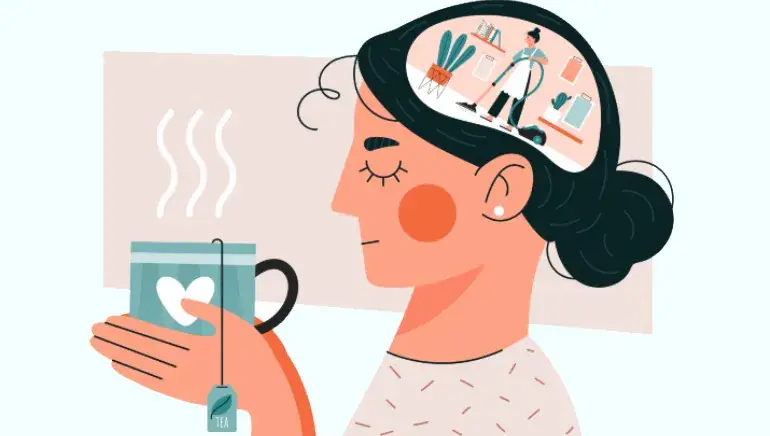The sexualized body - A cultural liberation or a psychoactive pandemic?
- Alfred Koo

- Jun 27, 2023
- 6 min read
Updated: Oct 17, 2023

The naked body is now wildly celebrated, worshipped, and normalized more than ever. In the HBO series Euphoria, we see Maddy and Cassie portrayed as high-schoolers who embrace their physical assets by wearing shockingly exposing outfits to school, and touching and moving their bodies in seductive manners in every episode. In her big-hit single Body, Megan Thee Stallion bombs us with the vivid, catchy verse, "Body crazy, curvy, wavy, big titties, lil' waist"; In cities where LGBTQ+ culture is profound, it has become ubiquitous to see people attending pride events and circuit parties wearing merely a jockstrap or harness, or even being completely naked to show off their genitals; at the gym, you will always encounter shirtless people posing in front of the mirror after every set; Florence Pugh, known for her role in Don't worry Darling and Black Widow, responded to the backlash after wearing a Valentino dress that deliberately shows off her nipples, "What’s more concerning is…. Why are you so scared of breasts? ..... We were raised to find power in the creases of our body. To be loud about being comfortable".
Whenever I question these cultures and behaviors, my friends would say I sound like a conservative (which is understandable). I've imagined a thousand ways where my thoughts can be denied and countered: "my body, my choice!"; "it's just art!"; "why would you try to change how people live their lives?"; "it's just embracing beauty and being confident!". Thus, I'd first like to acknowledge that we ARE long-pass the phase of stigmatizing people's choice of what to wear and what to do with their bodies; furthermore, anyone should definitely be proud of a body that is healthy and well-taken care of; not to mention, expressing the idea and the behavior of sex can be an effective way to relieve stress and build intimacy. However, is the sexualization of the body that simple? In this blog, I'd like to identify some neglected meanings behind body sexualization, and their possible consequences in the long run.
Obsessions and Addictions
The root problem of the sexualized body stems from:
its addicting nature + the fact that we now have a dramatic increase in accessing content that capitalizes on this addiction.

On social media and streaming platforms, we see people bending, twisting, posing, and shaking themselves in the most creative manner to sell their physical assets. At award ceremonies, "the more (sexually) provocative, the better!" seems to be a dominating theme that inspires celebrities' costumes. In tv shows, vanilla sex is no longer enough; people crave to see plots and scenes that are much more stimulating: cheating, kinks, dirty talks, power play, or even a taste of violence; all these trends symbolize the development of a higher tolerance for sexualized contents. Unfortunately, this addicting environment is only becoming more and more concentrated; furthermore, sexualizing the body has become a normalized way of living: posting sexual content on Onlyfans and Twitter; using physical attractiveness to link up with a sugar mommy/sugar daddy; shooting for the porn industry. With the development of AI, it's only a matter of time before we can spend hours designing and interacting with our personalized sexual adventure in augmented reality. To make matters worse, our brain has been conditioned to subscribe to the following values:
sexualizing the body = self-love + bravery + money + power + social opportunities + attention
However, at what cost? The devastating fact is, such value propagated by the mass media does not tell us the self-destructing side effects that don't manifest until many years later. First, associating the sexualized body with such indulging outcomes makes us more likely to target physical APPEARANCE as a major investment in life. This dependence translates to what we repeatedly see in celebrities and influencers: the obsession of defying aging and boosting attractiveness through fillers, botox, supplements, steroids, make-up, invasive surgeries, or even abstract ideas like body count. In Short, while appearance is the most up-front quality to be perceived, it is also fragile and easily-replaceable. Consequently, a strong dependence on sexualizing the body conveys a life is built upon short-term, unstable investments.
Depression and Anxiety
We often explain our depression and anxiety with negative experiences such as past trauma. However, how about self-objectification and over-stimulation? A 2009 study by Grabe & Hyde confirmed that consuming sexually-objectifying content by mass media leads to self-objectification, which is in turn linked to both depression and anxiety. In terms of over-stimulation, think of how psychoactive chemicals do to our brain and behaviors. When you become used to a diet that consists of high sugar, salt or fat, you will find it challenging to appreciate the natural flavors of a healthy, balanced diet; in addition, you might even experience "withdrawal" symptoms like mood swings when you make that diet switch. The same goes for our brain in response to an environment filled with intensified sexual materials. In Short, the overload of sexual signals in our surroundings is a trending drug that creates extreme highs (and thus lows) in our mental states, which can potentially make us more prone to developing psychological pathologies.
Chaos, messiness, and instability
Finally, think of these questions in a humanistic/philosophical sense: why are we discouraged to wear a harness to work? Why don't we (usually) have sex on the street in broad daylight? Why have the sex industries been considered dehumanizing? Is it 100% due to the so-called "oppression and conservatism" viciously imposed by religion and the outdated mind? If we ponder these questions in a non-political manner, we might see a valid reason behind why sexualization should be kept in check: separating animalistic desires from humanistic rationality conveys order, self-governance, and stability. On the other hand, over-sexualizing your body conveys the blurring of the borders between private life and professional life. If you choose to integrate and display sexual signals in many domains of your life, how could you expect people to put trust in your ability to withstand temptations and thrive beyond shallow pursuits?
We are animals, and at the same time humans. Our brain structure offers the same combination: our limbic system drives our primitive emotions and desires, but we've also developed an advanced central hub in the brain - the prefrontal cortex - which allows us to perform rational, complex interpretations and behaviors. A 2020 study published in the Current Directions in Psychological Science revealed that images that contained sexualized bodies are more likely to be cognitively processed as objects. In other words, our brain automatically interprets sexualized bodies as "dehumanizing".Thus, the ability to keep our sexual energy in check cannot be summarized by mere conservatism; rather, it represents a series of respectable characteristics including self-control, rationality, strength, and clear-mindedness. When we indulge in a highly-sexualized environment, we train ourselves to become a costume of flesh that lacks self-control, rational thinking, and long-term vision.
It is not to say that we can't express sexual signals through means such as art, fashion, and meaningful events; it is not to say people who do Onlyfans or work in the porn industry should be ashamed of what they do. Some people don't have the choice and the privilege; some do find meanings in what they do; some use their earnings for a greater cause; some just pursue this path as a phase in their lives. However, in the name of destigmatizing sexual liberation, our world has begun to nurture the mindset that we should be constantly challenging the boundaries without reflecting on the cost of giving in to our animalistic desires. Consequently, it is necessary for us to equip ourselves with self-evaluation and self-care strategies.
What Can We Do?

Become aware of the magnitude There are different magnitudes at which we celebrate the sexualized body. You can be an engineer who occasionally posts thirst traps on social media (low magnitude), a gym coach who frequently capitalizes on your physique to obtain students (medium magnitude), or an Onlyfans influencer whose income and values largely depend on sexualized content. the first step you can take is to evaluate how often you are exposed to sexualized environments. How much time do you spend watching pornography every week? How much time do you surround yourself with people who are heavily dependent on using their body assets for attention? How often do you attend parties that emphasize a sexualized atmosphere?
Train your brain to associate attractiveness with non-physical properties Pay conscious attention to the in-depth qualities of a target, even if it has sexualized signals. For instance, practice healthy evaluations such as, "This influencer has a really attractive body, but excluding his appearance, I also find his way of narrating his cooking process really inspiring!" "This series is really sexually provocative; however, what also draw my attention are the producer's choice of music and background color"
De-tox and re-set your mind through healthy hobbies Find adequate time to stay away from sexualized environments. Instead of scrolling through all the thirst traps on social media, create a second account that specifically follows non-sexualized content; instead of bombing your eardrums with sexually-provocative music, create an album that only contains lyric-free music or another genre; instead of attending a house party, immerse yourself with nature with your close buddies; instead of watching reality shows like Love Island or Single's Inferno, watch a documentary on the mysterious sea life.



Comments